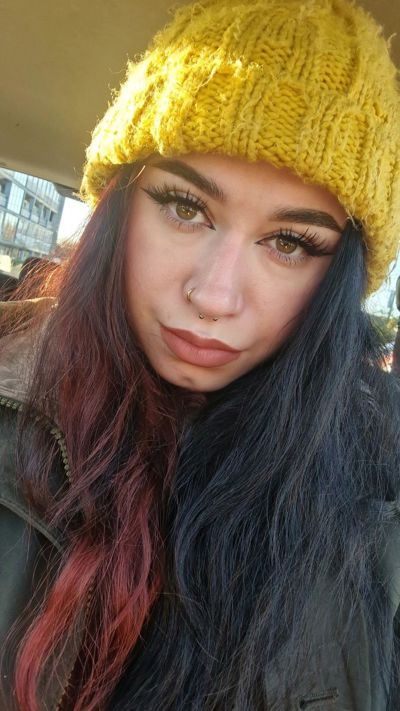"It is not shameful or weak to have a mental illness" – Nadia’s story
25/09/2024
Nadia recounts her journey with bipolar disorder type two. She talks about her mixed-race experience, the stigma found in her cultural and religious community, her relationship with her father and her first hypomanic episode.
I was born into a multicultural family in Walthamstow, London and lived there until I was 12 years old. With my mum being white British and my dad being Moroccan, from a young age I was taught about my Arabic heritage and Islam. We often visited Morocco during the summer holidays, however they weren’t always pleasant experiences.
As a young girl I was often met with comments about my weight. “Why is she so skinny, are you not feeding her?”, my aunty would say to my parents. As I started to gain weight, these comments then turned to “she is getting so fat, you need to stop her eating”. These comments had me questioning and struggling with my body image from a young age.
Being born into a multicultural family had a very big effect on my identity and how I viewed myself growing up. I think a lot of my mental health struggles stemmed from this. Religion was often used as a ground for extreme punishments (both physical and verbal), and I was controlled heavily by my dad. I wasn’t allowed to go out to see friends, wear makeup, wear dresses or skirts above my knee, talk to boys, watch TV or use computers for more than one hour per day.
-
I was the only Muslim in my school and began to lose my faith even more.
When I turned 12, we moved to Suffolk, a predominantly white Christian area. I was the only Muslim in my school and began to lose my faith even more. My mum struggled as she wanted to please my father but also wanted me to have a childhood. I love my mum dearly and she enabled me to experience some of the fun of being a teenager. However, the constant lying and sneaking around began to weigh on me.
At 15, I became very depressed. I’d cry all the time, began to self-harm and contemplate suicide. My dad didn’t ‘believe’ in mental illness. His response when I told him I thought I was depressed was: “depression doesn’t exists, just smile more, go for a run, get over it”. I decided after that, I would no longer confide in him.
My mum initially took me to the doctors, where I was diagnosed with depression, started on medication and referred to CAMHS (Child and Adolescent Mental Health Services). Because of the demographic of the area I lived in, the psychiatrists and psychotherapists didn’t fully grasp the effect my culture and family were having on my mental health.
-
My dad didn’t ‘believe’ in mental illness.
At the age of 17, I experienced what I now understand to be my first hypomanic episode. Hypomania presents differently for everyone, but for me it included excitable and erratic behaviour, racing thoughts, pressured speech, impulsivity, goal driven productivity and an increase in risk taking behaviour. I didn’t experience little to no sleep; rather 8 – 10 hours of interrupted and disturbed sleep. Future professionals went on to dismiss my diagnosis of bipolar due to this factor.
Let's Rethink
After a few therapy sessions, the practitioner at CAMHS suggested family therapy, as in order to overcome my depression I needed to address my relationship with my dad. I tried to explain over and over again that I couldn’t tell my dad I was coming here, let alone ask him to take part in family therapy. This idea was floated a few more times where I kept telling them the same thing – I would absolutely not be telling my dad I was here.
It was my mum whom I confided in, who had to pick me up from school after I got excluded for my behaviour during the episode. When I inevitably crashed, it was my mum who wiped my tears and took me to the hospital after I attempted suicide. I felt a lot of shame around my attempt, as in Islam it’s Haram (forbidden) to try to end your own life.
-
In our culture, this kind of thing isn’t spoken about.
Sadly, this wouldn’t be the last time I tried. We continued to keep it a secret from my dad and still do. In our culture, this kind of thing isn’t spoken about. It’s shameful. It’s seen as weakness. For a long time that is also how I viewed myself. Shameful and weak.
When I left home and went to university, I had a newfound freedom. I could do what I wanted, when I wanted, with who I wanted. I went off the rails and had some really dark times, but slowly began to find myself, reconnect with my faith and understand who I was without my parents’ influence.
I am now 28 and have a dual diagnosis of borderline personality disorder and bipolar disorder type two. My dad still doesn’t know, and likely never will. I have begun to understand that it is not shameful or weak to have a mental illness, that it is no different to having a physical illness. I realise that the more I use my voice to talk about it and educate people, the less stigma there will be.

